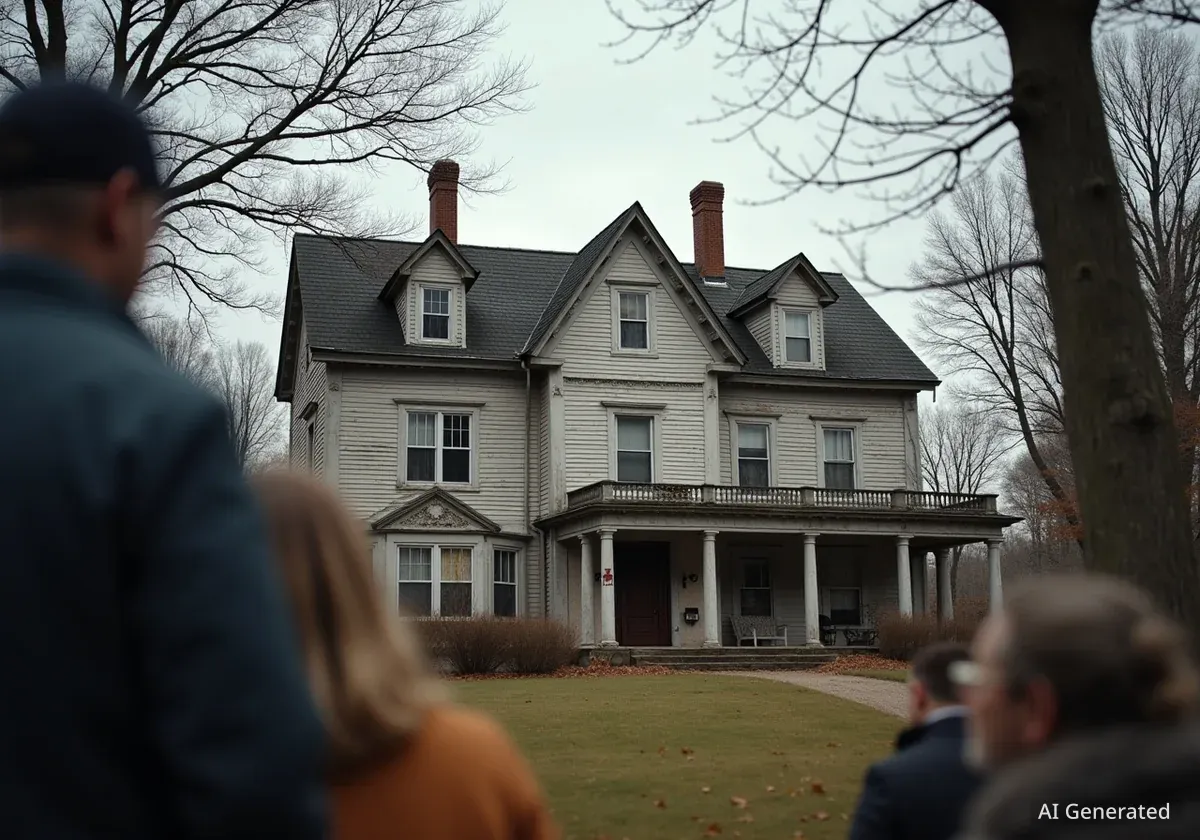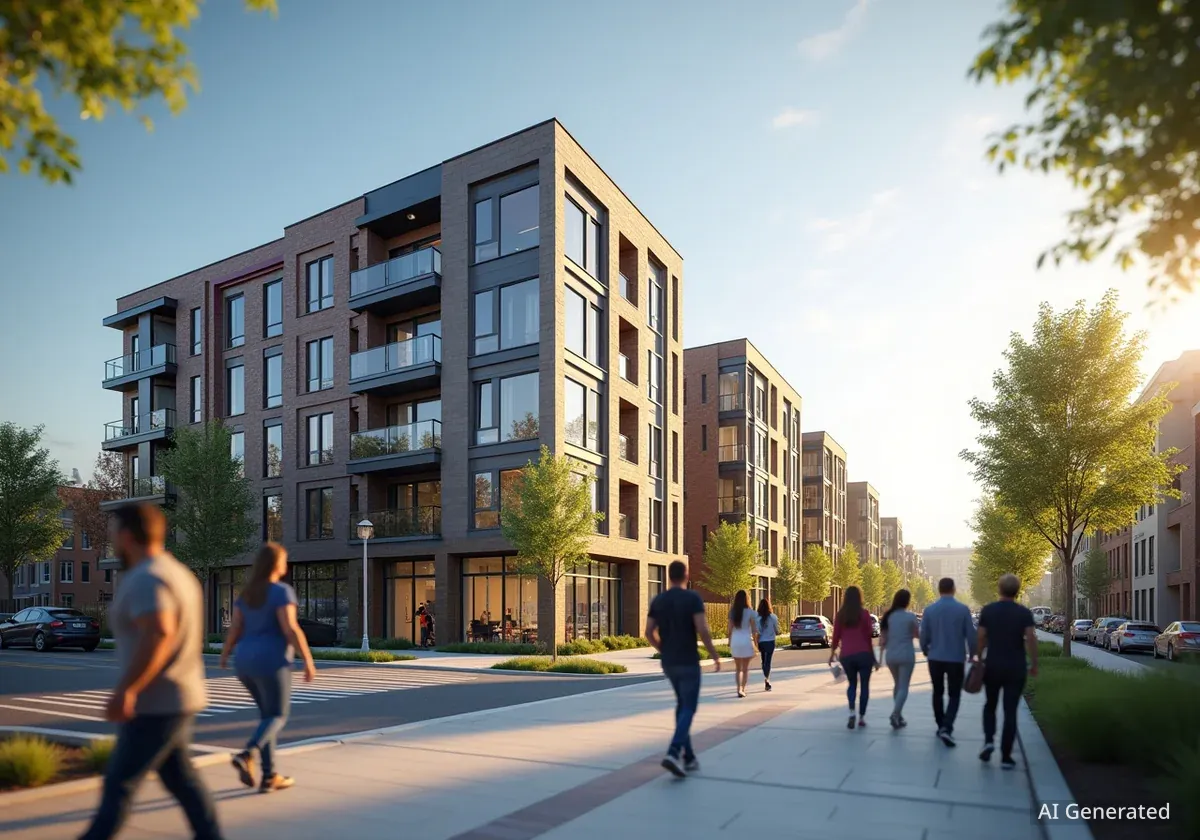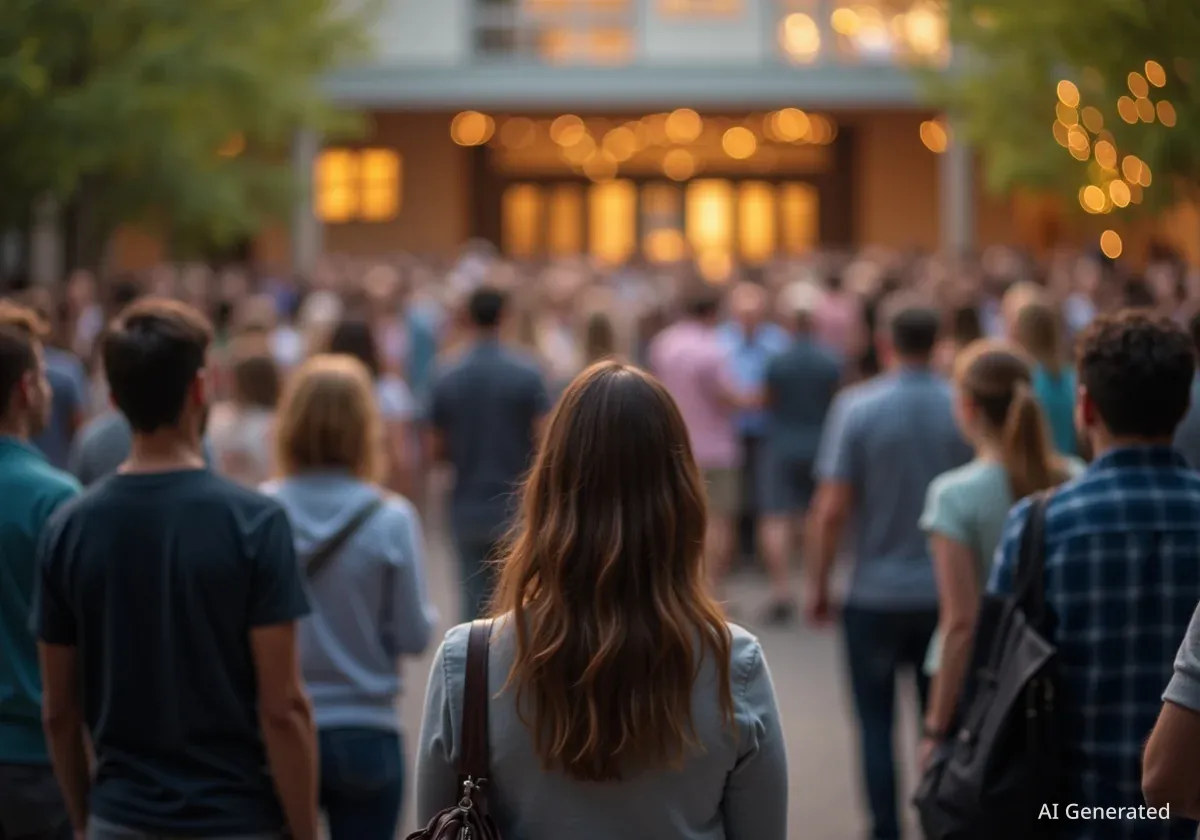Residents of Northborough, Massachusetts, are set to make a pivotal decision regarding the future of the historic White Cliffs estate. A Special Town Meeting has been scheduled for Monday, November 3, where a new proposal to restore the landmark property will be presented for a vote.
The meeting will address years of uncertainty surrounding the estate, offering a potential path to preserve a significant piece of the town's architectural heritage. The outcome of the vote will determine the next chapter for the long-debated property.
Key Takeaways
- Crucial Vote: Northborough voters will decide on a restoration plan for the historic White Cliffs estate.
- Meeting Details: The Special Town Meeting is scheduled for Monday, November 3, at 6:30 p.m.
- Location: The event will take place at the Algonquin Regional High School auditorium, located at 79 Bartlett Street.
- Historical Significance: The proposal aims to resolve long-standing uncertainty and preserve the landmark property for future generations.
Special Town Meeting to Address Landmark Property
The agenda for Northborough's upcoming Special Town Meeting is centered on one of the community's most prominent local issues: the White Cliffs estate. The meeting provides a formal platform for registered voters to directly participate in the town's governance and decide on key municipal matters.
Scheduled to begin promptly at 6:30 p.m. on November 3, the gathering will be held in the auditorium of Algonquin Regional High School. This venue was chosen to accommodate the expected public interest in the estate's future.
While town meetings often cover a range of topics, the White Cliffs proposal is anticipated to be the main focus of discussion and debate. According to town officials, this vote represents a significant opportunity to establish a clear direction for the property after a prolonged period of indecision.
What is a Special Town Meeting?
In many New England towns, a Special Town Meeting is a form of local government where registered voters convene to legislate on specific issues that arise between regularly scheduled Annual Town Meetings. These meetings allow for direct democratic participation on matters like zoning changes, special appropriations, and, in this case, the disposition of town-owned historic properties.
The Storied History of White Cliffs
The White Cliffs estate is more than just a property; it is a direct link to the region's industrial past. The mansion was originally built in 1886 for Daniel B. Wesson, the co-founder of the famed firearms company Smith & Wesson. It served as his summer home and is a notable example of Tudor Revival architecture.
For decades, the grand structure and its surrounding grounds were a symbol of prosperity. After its time as a private residence, the property was adapted for various uses, including serving as a popular restaurant and event venue for many years, hosting countless weddings and community functions.
A Period of Uncertainty
In more recent years, the estate has faced significant challenges. After closing as a commercial venue, the property's future became a subject of intense community debate. The costs associated with maintaining the aging structure, coupled with differing visions for its use, led to a stalemate.
Previous proposals for redevelopment or sale have failed to gain sufficient support, leaving the landmark vacant and vulnerable to neglect. This history of unresolved plans has created a sense of urgency among preservation advocates and town leaders to find a viable, long-term solution.
Architectural and Historical Significance
The White Cliffs estate is listed on the National Register of Historic Places, a federal designation that recognizes its importance to American history and culture. This status highlights the property's architectural integrity and its connection to prominent figures of the Gilded Age.
The New Proposal for Restoration
The plan being presented to voters on November 3 aims to break the cycle of indecision. While specific financial details will be outlined at the meeting, the proposal is centered on the restoration and adaptive reuse of the historic mansion. The goal is to return the estate to its former glory while ensuring it serves a modern purpose for the community.
Discussions leading up to the meeting have explored several potential uses for a restored White Cliffs. These possibilities often include:
- A publicly accessible community or cultural center.
- An elegant event space for weddings, corporate functions, and public gatherings.
- A mixed-use model combining public access with privately leased space to generate revenue.
- Preserving the grounds as a public park or open space.
Proponents of the plan argue that restoring White Cliffs is an investment in the town's identity and a way to create a valuable community asset. They emphasize that inaction could lead to further deterioration, potentially resulting in the permanent loss of the historic structure.
Community Perspectives and Potential Outcomes
The vote on the White Cliffs estate is expected to draw a wide range of opinions from Northborough residents. The primary considerations for many voters will likely revolve around the financial implications of the restoration project.
Key Questions for Voters
As they head to the meeting, residents will be weighing several critical factors. The debate is likely to focus on the total cost of the proposed restoration, the source of funding, and the long-term financial sustainability of the project. Questions about potential tax impacts are central to the discussion.
Furthermore, voters will want to understand the specifics of the proposed use. A clear and convincing vision for how the restored estate will benefit the entire community will be crucial for securing approval. Transparency regarding the operational plan and projected revenues will be essential.
"The future of White Cliffs is not just about preserving a building; it's about deciding what kind of community we want to be. This is a chance to save a piece of our history and create something valuable for everyone in Northborough."
The outcome of the November 3 vote will have lasting consequences. An affirmative vote would signal the start of a major preservation project, marking a new era for the estate. A negative vote would send town officials back to the drawing board, leaving the future of White Cliffs once again uncertain and continuing the long-standing debate over its fate.





